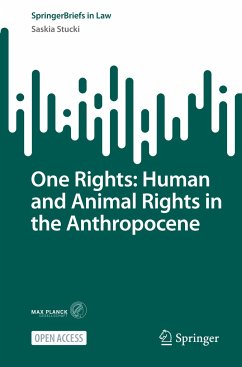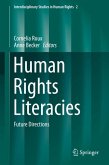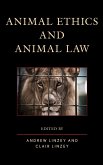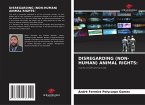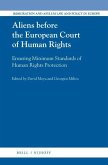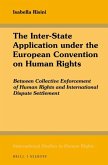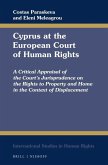This is an open access book.Animals are the traditional blind spot in human rights theory. This book brings together the seemingly disparate discourses of human and animal rights, and looks at emerging animal rights as new human rights. It approaches the question whether animals can and should have human rights through a comprehensive review of contemporary human rights philosophy, discussing both naturalistic and political justifications of human and animal rights. On philosophical as well as practical grounds, this book argues that there are compelling conceptual, principled, and prudential reasons for modernizing the human rights paradigm and integrating animals into its protective mandate.
Moreover, this book proposes the novel One Rights approach as a new (post-)human rights paradigm for the Anthropocene. One Rights advances a holistic understanding of the indivisibility and interdependence of human and animal rights. This book explores how thesystematic subjugation, exploitation, and extermination of animals simultaneously contributes to some of the gravest social and environmental threats to human rights, such as animalistic dehumanization and climate change. This book submits that, in light of their socio-political and ecological interconnectedness, human and animal rights are best protected in concert.
The themes of this book are part of a larger conversation about postanthropocentric legal paradigms emerging in the Anthropocene. For human rights to survive in this era of anthropogenic crises, we need to abandon the toxic ideology of human exceptionalism and embrace a more inclusive version of (post-)human rights that tends to the nonhuman. This book intends to show that a holistic One Rights approach promises to achieve better rights-protective outcomes for humans, animals, and their shared planetary home.
Moreover, this book proposes the novel One Rights approach as a new (post-)human rights paradigm for the Anthropocene. One Rights advances a holistic understanding of the indivisibility and interdependence of human and animal rights. This book explores how thesystematic subjugation, exploitation, and extermination of animals simultaneously contributes to some of the gravest social and environmental threats to human rights, such as animalistic dehumanization and climate change. This book submits that, in light of their socio-political and ecological interconnectedness, human and animal rights are best protected in concert.
The themes of this book are part of a larger conversation about postanthropocentric legal paradigms emerging in the Anthropocene. For human rights to survive in this era of anthropogenic crises, we need to abandon the toxic ideology of human exceptionalism and embrace a more inclusive version of (post-)human rights that tends to the nonhuman. This book intends to show that a holistic One Rights approach promises to achieve better rights-protective outcomes for humans, animals, and their shared planetary home.

